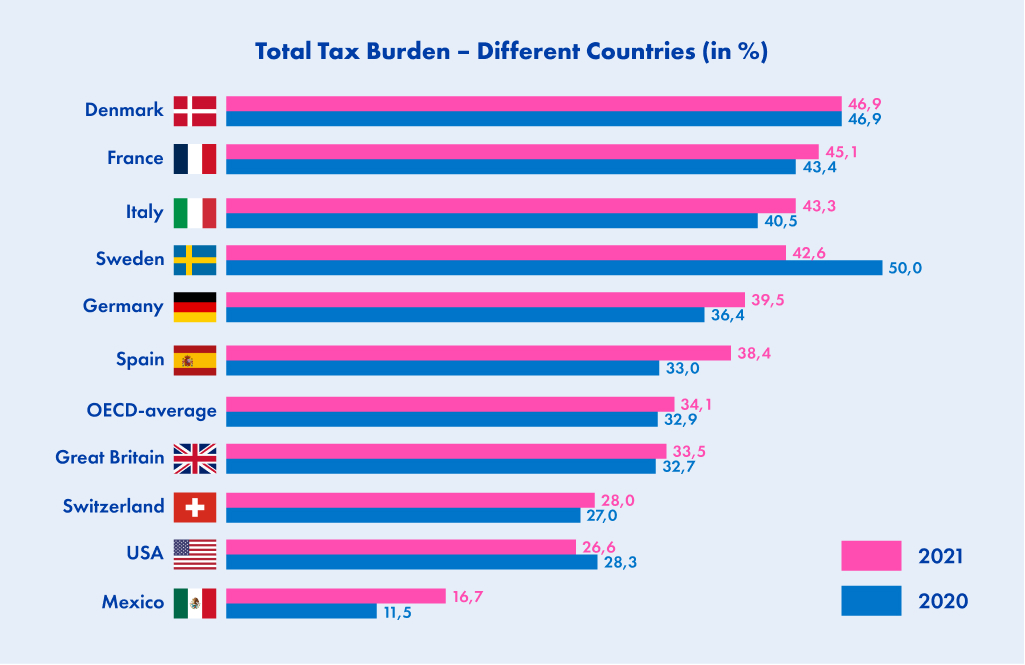Issue #111
Issue #111
Guten Morgen!
Happy New Year and welcome to another edition of the Krautshell! We’re back with a blast after the extended holidays (literally, if you spent 1 January in Berlin) and hope you had a calm couple of weeks. This week, Jonny lets off some steam regarding the New Year’s riots in parts of Germany, and how the polarized political debate is making a bad situation worse. In addition, check out our main articles discussing Germany’s latest defense policy drama, updates on the “Qatargate” EU corruption scandal, and how Germany bashing is making a big comeback (if it was ever gone) in the run-up to this year’s Polish elections. Finally, enjoy Szilvias take on the problem child of German’s government.


Anna Christian
FIRST, SOME SOLID INTEL:
German Defense Debacle – the Saga Continues
There are many ways to sweep an enemy off the battlefield, but broomsticks are generally not considered one of them. This joke made the rounds back in 2015, when German armored cars at a NATO maneuver were spotted with black-painted broomsticks as “machine guns”. Seven years have passed since this cringe-worthy spectacle, but things have gotten worse, if anything. First, it was revealed last fall that the German army lacked ammunition for more than a few days’ fighting (consider that Russia fires up to 60,000 artillery rounds per day). Then, during a training exercise in December, 18 out of 18 “Puma” infantry fighting vehicles took themselves out of action through technical and other malfunctions. This week, finally, rumors circulated that Defense Minister Christine Lambrecht (SPD) was on her way out. True or not, the current state of Germany’s defense posture bears reflection.
The bottom line is that Germany is woefully unprepared for any kind of military confrontation, and there does not seem to be any political will to change that. Sure, the Federal Republic has been traditionally pacifist for good reason, but there is a major land war going on and Berlin policymakers seem not to have gotten the memo. Last February’s announcement of a 100-billion-euro military “Special Fund” notwithstanding, Chancellor Olaf Scholz has contributed little to remedying the parlous state of military readiness, instead covering for a defense minister who can’t even name the ranks in the military she oversees. Not that removing her from office will necessarily fix the underlying debacle: The coalition agreement requires half the ministerial posts to be held by women, so half the population has already been disqualified. To be clear, women are just as capable for this job as men. But the war’s an hour’s flight away, and putting gender quotas ahead of national security surely betrays the government’s responsibility towards its citizens.
Qatargate: Fallout in the European Parliament
Let’s get back to a story we broke before the holidays. Most of the news center around the former VP of the EP (and former Greek news presenter) Eva Kaili. Essentially Kaili, along with other former members of European Parliament, aides, and family members allegedly were taking bribes from Qatar and Morocco to speak positively about the countries. To get the whole story, take a look HERE, as we want to go into the fallout.
Corruption is, unfortunately, nothing new in the European Institutions. Don’t just take our word for it: take a look at the 1999 Santer Commission, or the revelations in the “Uber Files” about ex-Commissioner Neelie Kroes. And these are just two examples of many. Naturally, any rational person would reach the conclusion that something should be done to police officials more closely. That rationality seems to be lost on the European Institutions. Ironically, a week before Qatargate broke, the European Commission (EC) rejected calls to create a body that has investigatory powers and the powers to sanction officials and ex-officials of the EU. Instead, the EC opted for an “advisory board” that can “set standards and definitions” for what officials can and cannot do – but without the power to enforce these guidelines, what’s the point? According to officials in the EC, the reason for this toothlesness is a “reluctance of institutions to cooperate with one another.” Without getting too conspiracy theory-ish, this is a prime example of political institutions focusing a little too heavily on self-preservation… that’s usually a sign of fishy behavior.
Finally, for some positive developments though, this week the European Parliament approved new powers for the European Public Prosecutor’s Office that allow it to investigate persons protected by privileges or immunities under EU law. However, outside observers call these changes more cosmetic than substantial. We’ll keep you updated.
Political Campaigning, Polish Style
There are obvious (and all too understandable) reasons why Germany bashing is something of a political sport among our Polish neighbors. And moreover, Berlin policymakers have a habit of turning themselves into tempting political targets. Take this particularly example: In 2020, the government apparently thought it was a great idea to appoint as ambassador to Poland a certain Arndt Freytag von Loringhoven, son of a high-ranking Wehrmacht general and aide de camp in Hitler’s bunker. To say this incident caused political drama is a bit of an understatement, but we digress. The point is that Eastern Europe’s largest democracy is calling to the polls this year, and Polish-German relations are on the political menu.
The ruling PiS (“Law and Justice”) government is facing unexpectedly stiff competition during this election cycle and has apparently decided that Germanophobia is an effective political weapon. Sure, most of the party’s setbacks are self-inflicted – especially corruption and rule of law disputes – but the government is making a major effort to focus popular ire at the big bad neighbor across the Oder river. For example, the government recently sent Germany a 1.3 trillion-euro reparations bill for damages suffered during World War II, taking advantage of Foreign Minister Baerbock’s public attempts to atone for Germany’s terrible history. (The German government rejected the proposal, of course.) More recently, Polish decision-makers have taken to embarrassing Berlin for its lackluster military support for Ukraine, initially rejecting German offers of Patriot air defense systems (in favor of Ukraine), and, just this week, announcing plans to deliver Polish (German-made) Leopard II battle tanks to Kyiv. This latter point could prove deeply embarrassing to Chancellor Scholz, since Germany is required to green light any export of German tanks and rejecting the Polish government’s proposal would look like a slap in the face for Ukraine. In short, whether or not Berlin-bashing will do the trick with Polish voters, it’s certainly causing the German government a fair share of trouble.
TAKE A BREAK, GIVE YOUR EYES A REST.

Source: WELT
THE HOUSE’S VIEW:
By Jonny
Always the Turn of the Year
I’ll be honest: I’m so sick of it. In this format we regularly take turns, sometimes Mats writes, sometimes Max, sometimes our esteemed guest author Dr. Steven Sokol, and sometimes I do. There is an implicit division of topics and it is my task, as the only “original German” in our constellation, to write about Germany. And that can be quite frustrating. The debates are becoming more and more irrational, the positions more and more extreme, and the all-important shades of gray are mostly neglected. But perhaps it is all the more the lot of “the others” to illuminate these shades of gray.
Riots on New Year’s Eve
Since this country does well primarily when people get upset about something, the quiet days around Christmas were reliably short-lived. The annual fireworks display on New Year’s Eve degenerated into street fights and violent excesses, especially in Berlin. It’s nothing that hasn’t happened in recent years, but this year, absurdly, rescue workers were particularly attacked as they tried to put out fires and treat the injured. Consequently, Germany is once again having a migration debate. Sounds weird? Let me explain.
The Germans and the No-So-Quite-Germans
It didn’t take long for the first media reports to emerge that spoke of approximately 150 people arrested in Berlin, of whom just one-third were supposed to be Germans. The story of migrants who despise the state and rebel against German authority was quickly told. In the meantime, we know that only 38 people were arrested for attacks on emergency forces, two thirds of whom were, of course, Germans. For the German himself does not like his state very much either, but this is apparently assessed differently than when migrants do not like the state.
The CDU in Berlin went even further, as they made a small inquiry in the parliament and wanted to know: what are the first names of the arrested Germans? If the German is called “Ali” or “Muhammed,” he is not as German as “Dieter” or “Jürgen”. Right-wing populists, to which most CDU politicians do not belong, like to distinguish between “real Germans” and “passport Germans,” i.e. people who were born here and have German citizenship, but whose parents or grandparents may come from another country.
All Nazis and Racists
Liberals and leftists are rightly proud that Germany has become an immigration country. Unfortunately, this does not mean that integration works well everywhere in our country. In many of our big cities there are real parallel societies, clan structures and indeed many people with an immigrant background who don’t think very much (good) of the German state. These are problems that must not only be addressed, but also tackled. Many conservative politicians tried this in the wake of New Year’s Eve, often unfortunately stirring up questionable resentment. But if democrats don’t talk about integration problems, right-wing extremists will, and we shouldn’t let that happen.
The left political spectrum is completely overwhelmed by this issue. It is, rightly of course, in favor of immigration to Germany, sometimes for ideological reasons, sometimes for very practical reasons such as the shortage of skilled workers. The fact that there are integration problems throughout Germany disturbs this narrative, which is why the knee-jerk reaction has now become to call any conservative politician who addresses these problems a “racist.”
Simple Solutions Only, Please
Both extreme sides ensure that we never get to the heart of the problem. Conservatives are rarely racists, but wanting to expel all migrants from our country, who have behaved badly, is not a particularly sensible attitude either. CDU leader Friedrich Merz recently demanded: “Anyone who doesn’t abide by our rules has no place in this country.” The problem is that many “real Germans” in this country do not abide by our rules, and no one would think of deporting them. We punish them with the means of the constitutional state, do what is appropriate. That we should do that with everyone who lives here, no matter if his name is “Dieter” or “Ali”, is the core of a democratic constitution and every halfway clear-thinking person knows that, of course also Friedrich Merz.
The House’s View
So, to demand that all criminal foreigners simply must get out of Germany is just as nonsensical as finding that everyone who demands that is a racist. More money for social work, more integration efforts, a strong constitutional state against clan structures and against criminal activities, less cynicism – these are not easy solutions, but that’s why they are right solutions. They are right solutions because they take into account shades of gray and because they do not fit on the back of a beer coaster. Many people would like to have clear and simple announcements from politicians, but simple announcements rarely solve complex problems.
The extremes in which these problems are discussed are tiresome. And those who always think only in terms of extremes prevent us from being able to name real extremes in the future or to portray them for the shocking things they really are.
So, the new year has barely begun, and I’m already pissed. What gives hope is the realization that the real world isn’t shaped on Twitter or in polarizing political talk shows. Many people are still nuanced and can handle ambiguity. Maybe politicians should be reminded of that from time to time.
LONG STORY SHORT:
- More Chips for Europe? The world’s leading manufacturer of semiconductors, Taiwan Semiconductor Manufacturing Company (TSMC), has voiced interest in building a first chip plant (“fab”) in Europe. This comes a few weeks after announcing a tripling of its investments in Arizona. TSMC produces over 90 percent of the world’s high-end computer chips.
- German Climate Protests Escalate: Earlier this week, a well-known association designated “climate terrorist” Germany’s “Unword of 2022” – a criticism of (right-wing) politicians’ use of the phrase last year. Unfortunately for the jury (and all supporters of peaceful climate protests), radical activists shortly afterwards engaged in violent street fighting with police in the deserted village of Lützeratz, which the government plans to tear down to make space for open pit coal mining. Bad timing indeed.
- SPD Advocates Diplomacy in Ukraine: Germany’s ruling Social Democratic Party has caught flak for a draft paper claiming that wars are “generally not decided on the battlefield” and that diplomacy should remain on the table in Ukraine. Andriy Melnyk, the former Ukrainian ambassador to Germany (and a harsh critic of the government’s Ukraine policy), quickly made the opposite point. The SPD has long faced criticism for its traditionally dovish position towards Russia.
WHAT’S ON OUR MINDS:
Germany, the sleeping beauty
You might be surprised, but joking about leading politicians is not as common in German media as in the Krautshell. When I say that Federal Defense Minister Christine Lambrecht unlocked the title “most embarrassing social media faux-pas of the year” right away on January 1st 2023, you can be sure that’s a real achievement.

It seems she is now throwing in the towel. At least that is what the German media reports. But don’t believe that the jokes about the embarrassing context or the poor quality of her New Year’s video are the reason behind that. It is the German defense resort with all its serious complexity that outpowered this woman’s will and professionalism.

In the previous legislative period, Lambrecht cleaned up the mess that called itself the Federal Justice Ministry, which is likely why Chancellor Olaf Scholz assigned her as Commander-in-Chief of the German Military to do her magic in this notorious house as well. The war against Ukraine put her into the spotlight along with the many, and I really mean many problems of the Bundeswehr as well. Wrapping up structural problems, updating almost every piece of military equipment and system, stocking up on munitions – all while leading the Zeitenwende debate on whether to equip Ukraine with German offensive weapons…

With Lambrecht taking a shortcut to the exit and the next candidate around the corner (Eva Högl, SPD, Defense Commissioner of the Bundestag is traded as a favorite), I wonder when a German government will understand that it requires a joint effort and a general commitment to get the German armed forces pimped into a state-of-the-art military. Hopefully it does not need another war to figure that out.


